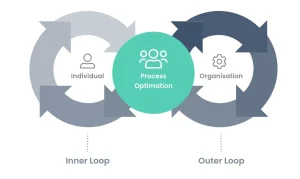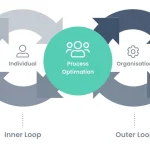Because of today’s volatile economy and unpredictable global events, financial stability is more important than ever. But what is financial stability? It’s not just about hoarding money, but about becoming financially wise, always having enough money, and making sure that your money works for your benefit. To achieve and maintain financial stability and the peace of mind that comes with it, these steps can help.
Assess Your Financial Situation
The first step in achieving financial stability is accurately assessing your present economic situation. This is how you’ll know what you need to do and how long it will take you to achieve financial stability. Examine your income, expenditures, and debts in minute detail. List your liabilities and assets so you can determine your net worth.
Have Concrete Money Plans
Like other goals, achieving financial stability requires you to set up SMART (Specific, Measurable, Achievable, Relevant, and Time-bound) objectives. Separate your long-term goals, like buying a house or retiring comfortably, from your shorter-term goals, like paying off your credit card debt. A good way to do this is to list down your goals and arrange them according to priority and the length of time needed to achieve them.
Make a Practical Spending Plan
Another important tool in achieving financial stability is a budget. Keep a careful account of all of your spending for a month to look for trends and places you may make cuts. Learn to prioritize your necessities over your wants and set aside some money each month for savings and investing. A well-managed budget is the foundation on which financial stability may be built.
Create a Rainy Day Fund
To not get caught unprepared in case you get into an accident, become ill, become unemployed, or need to do significant home or auto repairs, set aside some emergency money each month. Ideally, emergency savings should cover three to six months worth of costs. Create a special savings account for your emergency fund and keep saving regularly until you have enough money saved. This money will help you rest easy despite having no idea what the future holds.
Reduce Or Eliminate Debt
The money that goes into paying debt with a licensed money lender could’ve been saved or invested, which is why it’s both one of the biggest roadblocks toward financial independence that should be reduced or eliminated. To do that, employ a payment strategy, whether it’s the avalanche or snowball approach, or something in-between that fits your situation. Lastly, don’t take on new debt unless necessary, and ask your creditor if they can reduce your interest rate or give you more time to pay. If you have a good credit rating and income stream, you might be able to convince them to do so.
Invest, Invest, Invest
Investing is one of the core foundations of financial stability, as it allows you to earn money passively. There are many kinds of investments, but stocks, bonds, mutual funds, and real estate are those you should first familiarize yourself with, as they are common, profitable, and relatively safe. But before investing, consider your timeframe and level of comfort with risk. You should also diversify your investments across many asset classes to reduce exposure to loss and increase long-term gain potential.
Prepare For Retirement
These days, to be able to comfortably retire, knowledge and planning matter. Take full advantage of compound interest by saving for retirement as soon as feasible. Also, learn more about the CPF and private pension plan choices for your retirement.
The first true step to planning your retirement is finding out how much you need to save so you can retire soundly. Once you’ve done that and you’ve started putting money into your retirement fund, consistently assess if you’re on track to evaluate achieving your retirement objectives and make adjustments to your plans when needed.
Get Insured
Having insurance protects your finances from unforeseen events. Decide what health, life, disability, property, and vehicle insurance coverage are right for you. Should you decide to buy an insurance policy, familiarize yourself with its coverage and update your coverage regularly. Doing so ensures that you are protected when something unfortunate happens.
Be Financially Literate
Financial literacy is another core foundation of financial stability. To achieve this, dedicate time to learning economic theory, investing methods, and current events. Learn from books, seminars, and reputable financial advisors. It’s worth the time and effort, because with financial literacy, you will be able to make sound money-related decisions. And if you constantly make the right money moves, you will become and remain financially stable.
Be Diligent And Flexible
Maintaining financial stability requires diligence. Budgets, investments, and objectives should all be tracked on a regular basis. You also have to be flexible, as your circumstances can change at any time. If needed, adjust your financial plan to stay on track with your goals.
Conclusion
To be financially stable, you must be financially wise, dedicated, and diligent. And of course, it also helps to follow these steps. But don’t expect to see instant results. Remember, the biggest achievements are the result of a series of tiny, steady efforts. If you’re disciplined, patient, and persistent, you will not only ensure a sound financial future for yourself but also encourage others to do the same.











